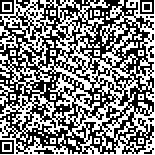| 摘要: |
| [摘要] 目的 调查HIV/AIDS患者(people living with HIV/AIDS,PLWHA)的医学应对方式状况,探索PLWHA患者应对方式的影响因素。方法 采用横断面研究,对221例PLWHA采用医学应对方式问卷(Medical Coping Modes Questionnaire,MCMQ)评分,并与中国常模比较。结果 PLWHA患者面对因子分低于常模,而回避、屈服应对方式的得分高于常模。性别、文化程度对PLWHA患者的MCMQ评分差异有统计学意义。在回避因子上,男性得分高于女性(P=0.038)。在屈服因子上,不同文化程度的PLWHA患者存在显著性差异,文盲与小学文化程度的患者MCMQ评分差异有统计学意义(P=0.050),与高中或中专患者的MCMQ评分差异有统计学意义(P=0.014)。结论 PLWHA患者的医学应对方式与中国常模存在显著性差异,PLWHA患者倾向于采用回避、屈服而不是面对的应对方式,经济情况、性别、文化程度对PLWHA患者的MCMQ评分有影响。 |
| 关键词: HIV/AIDS患者 医学应对问卷 影响因素 |
| DOI:10.3969/j.issn.1674-3806.2018.11.13 |
| 分类号:R 749.055 |
| 基金项目:南宁市科学研究与技术开发计划项目(编号:20143140) |
|
| A survey study on Medical Coping Modes Questionnaire score and its influencing factors in patients with HIV/AIDS |
|
HE Mei, ZHANG Ling, YAN Li-fu, et al.
|
|
Department of Clinical Psychology, Nanning Fifth People′s Hospital, Guangxi 530021, China
|
| Abstract: |
| [Abstract] Objective To investigate the current situation of HIV/AIDS patients′ medical coping styles and the influencing factors of the patients′ coping styles. Methods A cross-sectional study was carried out in 221 people living with HIV/AIDS(PLWHA) using Medical Coping Modes Questionnaire(MCMQ) scoring and the results of the scoring method were compared with those of Chinese normal model. Results The results showed that the scores of confrontation in the PLWHA were lower than those in the normal model, while the scores of avoidance and acceptance-resignation were higher than the normal model. Gender and educational level had statistically significant influences on MCMQ scores in the PLWHA. On the avoidance factor, the male patients scored higher than the female patients(P=0.038). On the acceptance-resignation factor, there were significant differences in different education levels of the PLWHA. There were significant differences in MCMQ scores between the illiterate patients and the patients with primary education level(P=0.05). There were significant differences in MCMQ scores between the illiterate patients and the patients with high school or technical secondary school education levels(P=0.014). Conclusion There are significant differences in the medical coping styles between the PLWHA and the Chinese normal model. The PLWHA tend to have avoidance and acceptance-resignation coping styles rather than facing coping style. The economic status, gender, education level have impacts on MCMQ scores in the PLWHA. |
| Key words: People living with HIV/AIDS(PLWHA) Medical Coping Modes Questionnaire(MCMQ) Influencing factors |

